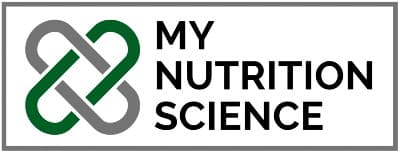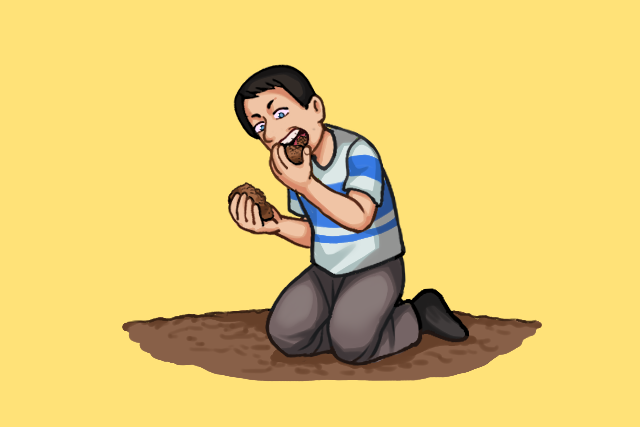Extended Summary
Insulin levels increase in response to eating carbohydrate-rich foods, and many people believe this leaves you susceptible to body weight and fat gain. The idea that foods which increase insulin are fattening usually stems from the oversimplified notion that insulin is a “fat-storing hormone”. But while it is true is that insulin shunts circulating fat to fat tissues for storage, what often goes amiss is that insulin also increases the entry and use of sugar (glucose) as a fuel source. It is more likely that sugar will be utilised as an energy source when insulin levels are elevated, and it is more likely that fat will be utilised as an energy source when insulin levels are low. Insulin is therefore more accurately described as a nutrient partitioning hormone as opposed to a fat-storing hormone. It helps the body to decide which fuels are going to be oxidised (”burnt”) and which fuels are going to be stored — with no reason to suspect this has much influence on the net storage of body fat. We also consider that in the context of an energy-matched diet, even if one inhibits the actions of insulin by reducing carbohydrate intake, there is going to be more fat available for storage due to subsequent increases in dietary fat intake.
More importantly, if it were true that foods that raise insulin are fattening, then we would expect all carbohydrate-rich foods to be linked with body fat gain. But many food examples suggest this is not the case. A couple of examples are randomised trials that increase participants consumption of either fruit and pulses and consistently note weight maintenance or modest weight loss (including body fat loss). We also note that most of the leanest populations in the world (typically in Asia) eat a moderate to high carbohydrate diet, and that reviews of the most successful fat loss diets are often rich in carbohydrates, such as a plant-based diet, low fat diet, and a Mediterranean diet.
Moreover, if it were true that foods that raise insulin are fattening, then we would expect low carbohydrate diets to be clearly superior than high carbohydrate diets for fat loss. But this prediction does not pan out. One research group conducted an in-patient randomised crossover trial comparing an eat-all-you-like high-carbohydrate diet (75% carbohydrate, 10% fat) and low-carbohydrate diet (75% fat, 10% carbohydrate) for 2 weeks and found that both groups lost a similar amount of body fat. Diet quality was high in both diet groups but if foods raising insulin were indeed fattening, diet quality should not stop measurable fat gain, let alone promote fat loss. It must therefore be that insulin is not promoting fat gain, or that any fattening effect of the raised insulin from these foods is dramatically overpowered by other physiological factors such as energy density and appetite.
While many claims regarding uniquely fattening properties of both dietary fat and carbohydrates persist, no macronutrient has been convincingly shown to influence body fatness independent of energy intake. A meta-analysis of controlled isocaloric feeding studies supports this position. By analysing studies that varied substantially in the proportions of dietary fat (4 – 84% of total energy) and carbohydrate (1 – 83% of total energy) that participants consumed during the intervention, the results indicated very little impact of macronutrient ratio on changes in body fat when total energy and protein intake were held constant. While a couple of re-analyses of the data have suggested the possibility that high-carbohydrate diets increase energy expenditure in short trials and high-fat diets increase energy expenditure in long trials, the effect size is small and the same analysis has not yet been performed for body fat.
Certain people argue that the included studies are not long enough to showcase the fattening effects of insulin; however, the supposed fattening effect of insulin is based on its rapid actions — either signalling for body fat storage or creating a state of ‘internal starvation’ after eating. Any fattening effect should be seen quickly if the claim were true. We also see in much longer randomised trials such as DIETFITS study that time does not change body fat responses to insulin. DIETFITs took 609 overweight adults and randomised them to either an eat-all-you-like healthy low-fat (~48% carbohydrate) or healthy low-carb (~30% carbohydrate) diet for 12 months. The results showed total energy intake was not significantly different between diet groups at any time point (3, 6 and 12 months) and that both groups lost clinically similar amounts of body fat. A network meta-analysis of 121 randomised control trials aligns with these findings. It compared 17 dietary patterns differing in their carbohydrate and found that low-carbohydrate and high-carbohydrate diets had similar weight outcomes at both 6 and 12 months.
Finally, if it were true that foods that raise insulin are fattening, then we would expect people with higher insulin responses to meals to have a more difficult time losing weight compared to those with lower insulin responses. But we would again like to point out that this is not the case. One study assessed fasting insulin levels, insulin resistance, and the insulin responses to two consecutive meals (breakfast and lunch) in women with obesity before they began an energy-restricted diet for up to 60 days. The researchers found that diet successors (women who lost at least 1% of their body weight per week) and failures (women who did not) did not significantly differ in any baseline characteristic of insulin. They also found that although diet successors had vastly different levels of insulin resistance and insulin responses to meals, the amount of weight they lost did not vary as a function of insulin. The most insulin-resistant and hyperinsulinemic subjects lost weight as effectively as the most insulin-sensitive subjects with the lowest insulin responses to meals. These findings were later reproduced with more participants and a slightly longer study duration.






